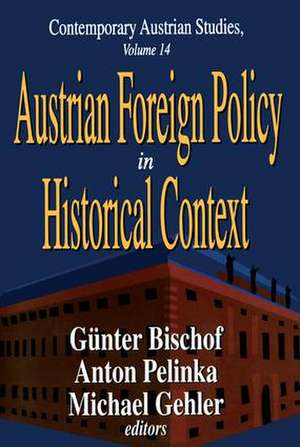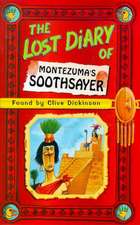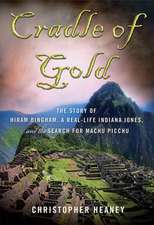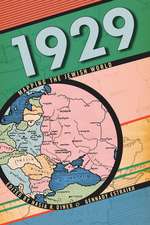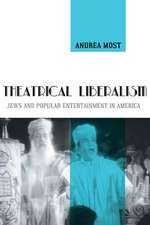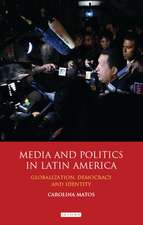Austrian Foreign Policy in Historical Context: Contemporary Austrian Studies
Autor Anton Pelinka, Gunter Bischof, Michael Gehleren Limba Engleză Paperback – 11 ian 2005
| Toate formatele și edițiile | Preț | Express |
|---|---|---|
| Paperback (1) | 330.97 lei 6-8 săpt. | |
| Taylor & Francis – 11 ian 2005 | 330.97 lei 6-8 săpt. | |
| Hardback (1) | 669.94 lei 6-8 săpt. | |
| Taylor & Francis – 26 feb 2018 | 669.94 lei 6-8 săpt. |
Preț: 330.97 lei
Nou
Puncte Express: 496
Preț estimativ în valută:
63.34€ • 65.88$ • 52.29£
63.34€ • 65.88$ • 52.29£
Carte tipărită la comandă
Livrare economică 15-29 aprilie
Preluare comenzi: 021 569.72.76
Specificații
ISBN-13: 9781412805216
ISBN-10: 141280521X
Pagini: 432
Dimensiuni: 152 x 229 x 31 mm
Greutate: 0.64 kg
Ediția:1
Editura: Taylor & Francis
Colecția Routledge
Seria Contemporary Austrian Studies
Locul publicării:Oxford, United Kingdom
ISBN-10: 141280521X
Pagini: 432
Dimensiuni: 152 x 229 x 31 mm
Greutate: 0.64 kg
Ediția:1
Editura: Taylor & Francis
Colecția Routledge
Seria Contemporary Austrian Studies
Locul publicării:Oxford, United Kingdom
Notă biografică
Anton Pelinka, Gunter Bischof, Michael Gehler
Cuprins
1: Introduction; 3: Austrian Foreign Policy after World War II; 2: Topical Essays; I: Introduction; 4: Diplomats: Symbols of Sovereignty become Managers of Interdependence: The Transformation of the Austrian Diplomatic Service; 5: An Institutional History of the Austrian Foreign Office in the Twentieth Century; 6: Sources on the Diplomacy of the Ballhausplatz; II: Late Habsburg and First Republic Foreign Policy; 7: The Militarization of Austrian Foreign Policy on the Eve of World War I; 8: Austria between Mussolini and Hitler: War by Other Means; III: Second Republic Foreign Policy: Turning Points and Continuities; 9: Between East and West: The Origins of Post-World War II Austrian Diplomacy during the Early Occupation Period; 10: Neutral Encounters of the Paranoid Kind: Austria’s Reactions to the Hungarian Crisis of 1956; Kreisky - Brandt - Khrushchev: The United States and Austrian Mediation during the Berlin Crisis, 1958-1963; 12: From Cooperation to Integration: The Foreign Policy/ies of the Austrian Länder; 13: ESDP and Austria: Security Policy between Engagement and Neutrality; 14: Foreign Policy in the Age of Globalization: Does Globalization Constrain Nation States’ Sovereignty in Conceiving and Maintaining their Foreign Policy?; 15: Recent Balkans Diplomacy from an Austrian Perspective; 3: Non-Topical Essay; 16: The Institutionalization of American Studies at Austrian Universities: The Innsbruck Model; 4: Roundtable 1; 5: The Historiography and Memory of the Austrian Occupation (1945-1955); 17: The Allied Occupation of Austria in Recent International and Austrian Historiography; 18: The “Allied Occuption” and the Collective Memory of Austrians after 1945: “Ending a 17 year-long path of bondage full of thorns” (Leopold Figl, 15 May 1955); 19: Still “Occupied” by Germany 1945-1955? Arguments, Concepts, and Strategies in the Austrian Struggle against a Crucial Dependence; 20: Soviet Plans and Policies for Austria’s Transition to Socialism, 1945-1955; 21: Stalin and the Austrian Question 1; 6: Review Essays; 22: Borders in Recent Austrian Historiography; 23: Provenance Research as History: Reconstructed Collections and National Socialist Art Looting; 24: The Cold War and 1956 in Hungary; 7: Book Reviews; 25: Georg Rigele, Zwischen Monopol und Markt. EVN das Energie- und Infrastrukturunternehmen (Maria Enzersdorf: Selbstverlag der EVN AG, 2004); 26: Rupert Pichler, ed., Innovationsmuster in der österreichischen Wirtschaftsgeschichte. Wirtschaftliche Entwicklung, Unternehmen, Politik und Innovationsverhalten im 19. und 20. Jahrhundert (Innsbruck: Studienverlag, 2003); 27: Matti Bunzl, Symptoms of Modernity: Jews and Queers in Late Twentieth-Century Vienna (Berkeley: Univ. of California Press, 2004); 28: Margareth Lun, NS-Herrschaft in Siidtirol Die Operationszone Alpenvorland 1943-1945 (Innsbrucker Forschungen zur Zeitgeschichte 15) (Innsbruck: Studienyerlag, 2004); 29: James Jay Carafano, Waltzing into the Cold War. The Struggle of Occupied Austria (College Station: Texas A&M University Press, 2002); 30: Heinz P. Wassermann, Verfälschte Geschichte im Unterricht. Nationalsozialismus und Österreich nach 1945 (Vienna: StudienVerlag, 2004); 8: Annual Review; 31: Austria 2004; 32: List of Authors
Descriere
In 2005, Austria celebrated the sixtieth anniversary of its liberation from the Nazi regime and the fiftieth anniversary of the State Treaty that ended the occupation and returned full sovereignty to the country
